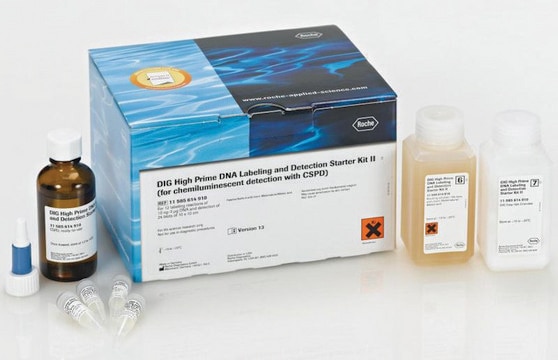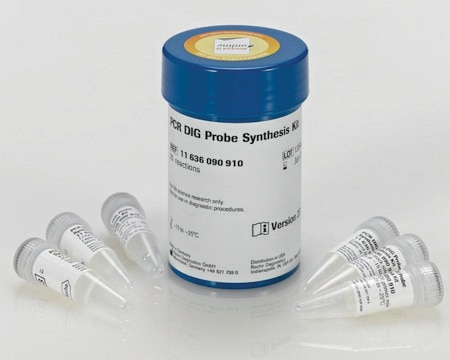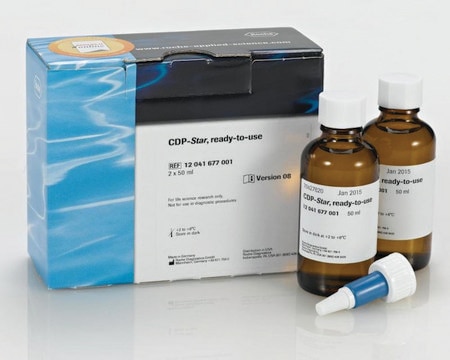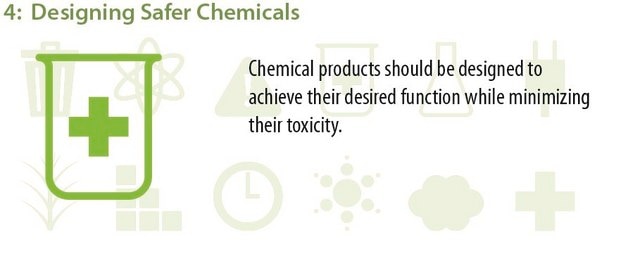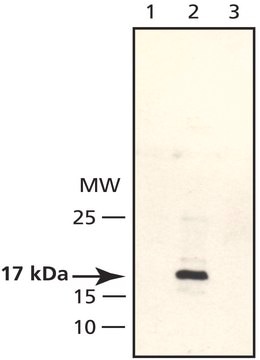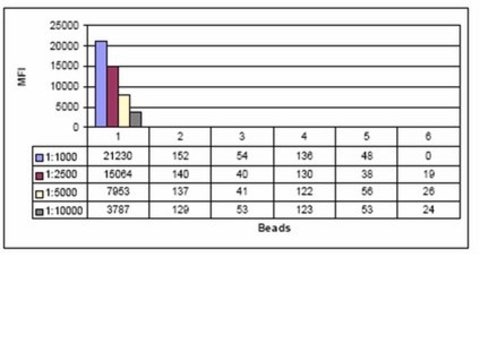07-574
Anti-CENP-A Antibody
Upstate®, from rabbit
Synonym(s):
Anti-CENP-A, Anti-CenH3
Sign Into View Organizational & Contract Pricing
All Photos(1)
About This Item
UNSPSC Code:
12352203
eCl@ss:
32160702
NACRES:
NA.41
Recommended Products
biological source
rabbit
Quality Level
antibody form
affinity purified immunoglobulin
antibody product type
primary antibodies
clone
polyclonal
purified by
affinity chromatography
species reactivity
human
manufacturer/tradename
Upstate®
technique(s)
western blot: suitable
isotype
IgG
NCBI accession no.
UniProt accession no.
shipped in
wet ice
target post-translational modification
unmodified
Gene Information
human ... CENPA(1058)
General description
CENP-A is a variant version of histone H3 found only at centromeres.
Centromere protein A (CENP-A) is a 17 kDa centromere-specific histone variant with 62% amino acids homology to the C-terminal of histone H3. Localized in the centromere, it plays a central role in the centromere-specific chromatin formation. The depletion of histone H3 at the CENP-A binding domain suggests CENP-A to be a possible replacement for histone H3 in the packaging process of α-satellite DNA into primary chromation structure. CENP-A is essential in the formation of specialized nucleosomes at the centromere, implicating CENP-A as a centromere-specific epigenetic marker.
Specificity
Broad species cross-reactivity is predicted.
CENP-A
Immunogen
peptide (RRRSRKPEAPRRRS) corresponding to amino acids 4-17 of human CENP-A
Application
Anti-CENP-A Antibody is a Rabbit Polyclonal Antibody for detection of CENP-A also known as Centromere autoantigen A & has been tested in WB.
Research Category
Epigenetics & Nuclear Function
Epigenetics & Nuclear Function
Research Sub Category
Cell Cycle, DNA Replication & Repair
Cell Cycle, DNA Replication & Repair
Quality
routinely evaluated by immunoblot in acid extracted histones from HeLa cells
Target description
17kDa
Linkage
Replaces: 04-205
Physical form
Affinity purified immunoglobulin in 0.1M Tris-glycine, pH 7.4, 0.15M NaCl, 0.05% sodium azide.
ImmunoAffinity Purified
Storage and Stability
Stable for 1 year at 2 to 8ºC from date of receipt.
Analysis Note
Control
Control Histones (from Hela cells) colcemid-treated or untreated
Control Histones (from Hela cells) colcemid-treated or untreated
Legal Information
UPSTATE is a registered trademark of Merck KGaA, Darmstadt, Germany
Disclaimer
Unless otherwise stated in our catalog or other company documentation accompanying the product(s), our products are intended for research use only and are not to be used for any other purpose, which includes but is not limited to, unauthorized commercial uses, in vitro diagnostic uses, ex vivo or in vivo therapeutic uses or any type of consumption or application to humans or animals.
Not finding the right product?
Try our Product Selector Tool.
wgk_germany
WGK 1
Certificates of Analysis (COA)
Search for Certificates of Analysis (COA) by entering the products Lot/Batch Number. Lot and Batch Numbers can be found on a product’s label following the words ‘Lot’ or ‘Batch’.
Already Own This Product?
Find documentation for the products that you have recently purchased in the Document Library.
CENP-A nucleosomes localize to transcription factor hotspots and subtelomeric sites in human cancer cells.
Athwal, RK; Walkiewicz, MP; Baek, S; Fu, S; Bui, M; Camps, J; Ried, T; Sung, MH; Dalal, Y
Epigenetics & Chromatin null
Essential role of microphthalmia transcription factor for DNA replication, mitosis and genomic stability in melanoma.
Strub T, Giuliano S, Ye T, Bonet C, Keime C, Kobi D, Le Gras S, Cormont M, Ballotti R et al.
Oncogene null
Qubo Zhu et al.
The Journal of cell biology, 185(5), 827-839 (2009-06-03)
Telomeric repeat binding factor 1 (TRF1) is a component of the multiprotein complex "shelterin," which organizes the telomere into a high-order structure. TRF1 knockout embryos suffer from severe growth defects without apparent telomere dysfunction, suggesting an obligatory role for TRF1
Cell-cycle-dependent structural transitions in the human CENP-A nucleosome in vivo.
Bui, M; Dimitriadis, EK; Hoischen, C; An, E; Quenet, D; Giebe, S; Nita-Lazar, A; Diekmann et al.
Cell null
Nucleolar organization, ribosomal DNA array stability, and acrocentric chromosome integrity are linked to telomere function.
Stimpson, KM; Sullivan, LL; Kuo, ME; Sullivan, BA
Testing null
Our team of scientists has experience in all areas of research including Life Science, Material Science, Chemical Synthesis, Chromatography, Analytical and many others.
Contact Technical Service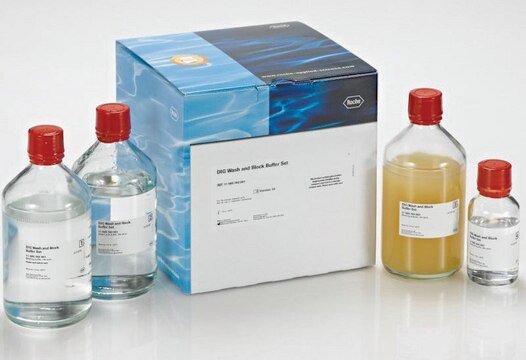
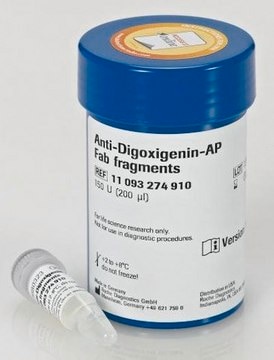
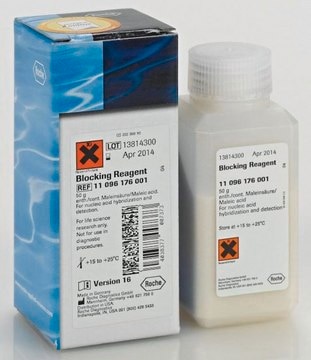
![CSPD ready-to-use Disodium 3-(4-methoxyspiro {1,2-dioxetane-3,2′-(5′-chloro)tricyclo [3.3.1.13,7]decan}-4-yl)phenyl phosphate](/deepweb/assets/sigmaaldrich/product/images/352/091/ef743cea-ccd8-44f1-8f3b-dec5a1e4f5d1/640/ef743cea-ccd8-44f1-8f3b-dec5a1e4f5d1.jpg)
